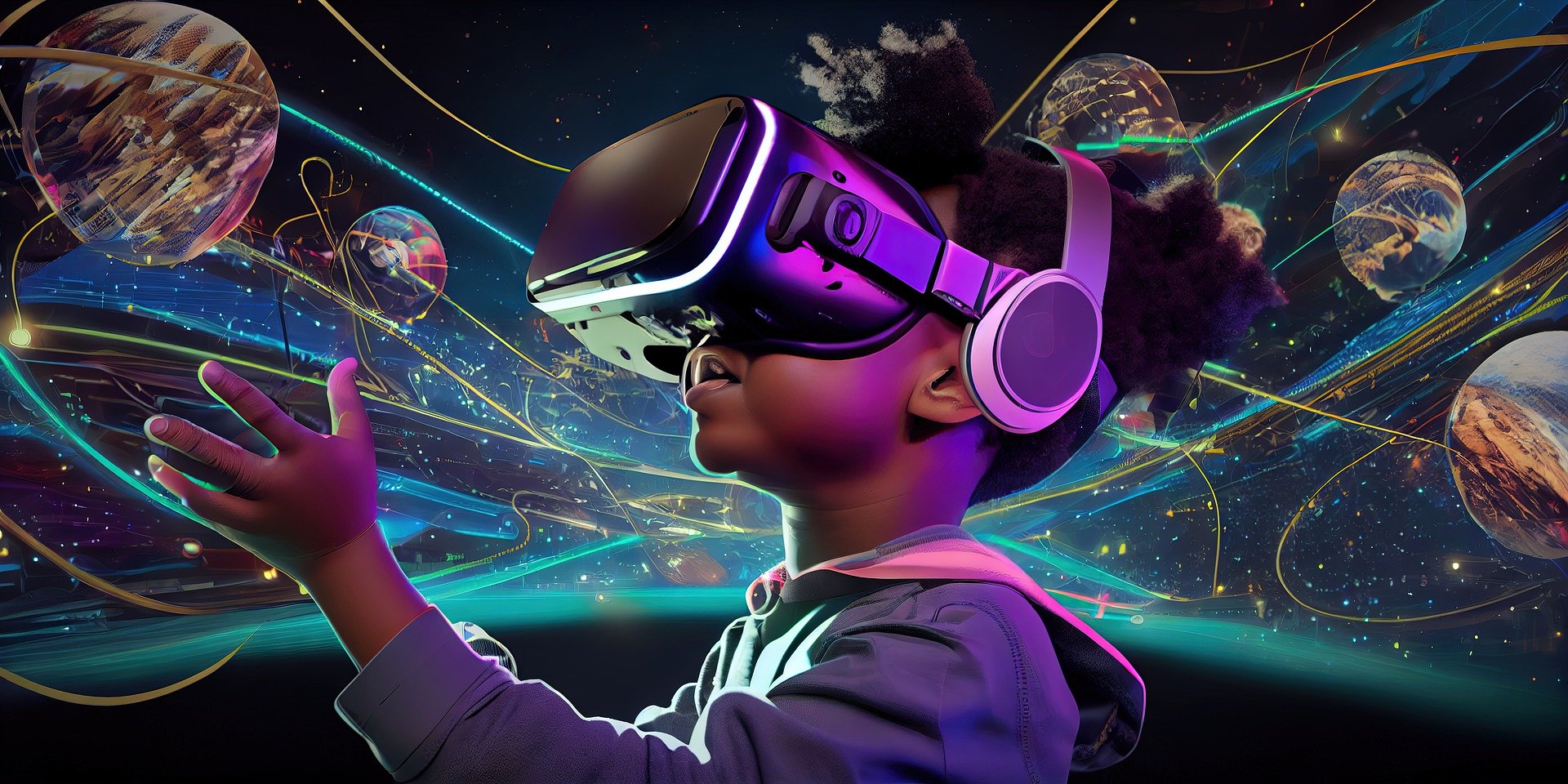Metaverse 2.0: The Next Big Trends in Virtual Reality

Welcome to the future, where virtual reality isn’t just a buzzword—it’s becoming an integral part of our lives. The Metaverse is evolving rapidly, morphing from a mere concept into a dynamic, immersive digital landscape. With each passing day, virtual reality (VR) trends are reshaping how we interact with technology and each other. The possibilities are limitless, whether it’s exploring virtual spaces for gaming or engaging in social VR experiences.
As we dive deeper into this captivating realm, we’ll explore the latest innovations driving the Metaverse forward—from cutting-edge immersive technology to addressing ethical dilemmas that arise within these digital universes. Buckle up as we navigate through fascinating developments shaping our interaction with augmented reality (AR), extended reality (XR), and beyond!
The Evolution of the Metaverse: From Concept to Reality
The Metaverse began as a visionary idea, often portrayed in sci-fi literature and films. This digital realm was once confined to the imagination, but technological advancements have propelled it into our reality.
Initially centered around VR gaming, the concept has expanded dramatically. Today, immersive technology allows users to create their own virtual spaces and experiences. Social interactions within these environments are becoming increasingly sophisticated.
Blockchain technology is also playing a pivotal role. Decentralized systems allow for the ownership of digital assets, giving users real stakes in this evolving landscape. Virtual currencies facilitate transactions seamlessly across platforms.
As companies invest heavily in Metaverse innovations, we’re witnessing a fusion of AR and XR technologies that further enhance immersion. Education, workspaces, and entertainment are merging with the digital world more than ever before. The journey from concept to reality is just beginning—and it’s full of potential.
Immersive Experiences: The New Standard in VR
Immersive experiences are revolutionizing the landscape of virtual reality. Gone are the days of simple interactions and flat graphics. Today’s VR transports users into vibrant, 3D worlds that feel incredibly lifelike.
The rise of immersive technology has set a new standard for engagement. Users can explore vast virtual spaces, interact with realistic environments, and connect with others in ways previously thought impossible.
From social VR platforms to advanced gaming scenarios, immersion is key. Players don headsets and lose themselves in meticulously crafted universes where every detail matters. The emotional impact is profound as they experience narratives like never before.
AR also plays a pivotal role in enhancing real-world elements within these digital realms. This blend of augmented reality and traditional VR expands creative possibilities across various industries.
As developers continue to push boundaries, expectations will soar higher than ever before. Immersive experiences aren’t just an addition; they’re becoming essential to our digital lives.
Ethics and Privacy: Navigating the Challenges of a Digital Universe
As we continue to explore the vast possibilities of the Metaverse, ethics and privacy emerge as pressing concerns. The digital universe presents unique challenges that require careful navigation. With immersive technology like Virtual Reality (VR) and Augmented Reality (AR), users are more connected than ever before—yet this connectivity raises questions about data security.
The collection of personal information in virtual spaces can be extensive. Users often share sensitive details without realizing their implications. To foster a safe environment, developers must prioritize transparent practices regarding data usage. This is especially essential in social VR settings where interactions can feel deeply personal but may lack adequate safeguards.
Moreover, creating an ethical framework for behavior within these environments is critical. As VR gaming and experiences become increasingly popular, fostering respectful communication becomes paramount to ensure positive interactions among users from diverse backgrounds.
Addressing these ethical dilemmas will shape how individuals engage with emerging technologies moving forward. The balance between innovation in the Metaverse and protecting user rights will dictate its evolution into a sustainable digital realm that people trust and embrace wholeheartedly.
Navigating these complexities requires collaboration among tech companies, policymakers, and users alike. By prioritizing both innovation and ethics, we pave the way for a vibrant future where immersive experiences enhance our lives while safeguarding our values.
Beyond the Buzz: What the Metaverse Conversation Is Still Missing
The metaverse is no longer just a futuristic buzzword—it’s fast becoming a centerpiece of digital innovation. With immersive experiences, virtual economies, and mind-bending technological advances, it promises to reshape how we work, play, and connect. But while the headlines often focus on growth projections, flashy AR/VR tech, and virtual real estate booms, there are still major conversations we’re not having.
Here are four essential topics that the current metaverse discourse is barely scratching—or missing altogether:
1. The Legal Wild West: Where Are the Rules?
The metaverse is pushing boundaries—but who’s setting them?
As users create, buy, and sell virtual goods and property, questions about intellectual property, jurisdiction, and data rights are becoming increasingly urgent. If a user’s avatar is hacked or a virtual asset is stolen, who is held accountable? What happens when a transaction crosses national borders? How will regulators handle decentralized platforms?
Right now, it’s a gray area—more speculative than secure. Without clear regulatory frameworks, users and businesses alike are exposed to significant risks. If the metaverse is to be more than a playground for early adopters, it needs a legal backbone that’s as innovative as the tech it supports.
2. Ethics in the Ether: Who’s Watching Out for Us?
Immersive environments offer unprecedented engagement, but they also raise ethical red flags.
From surveillance and data mining to manipulative design that keeps users plugged in for hours, the potential for abuse is real. There’s also the issue of digital well-being—how do we draw boundaries in a space that never logs off?
And then there’s identity and representation. Who gets to define the norms of these virtual spaces? How are avatars treated, and what happens when virtual actions have real-world psychological impacts?
The metaverse needs ethical guardrails that go beyond simple terms of service—ones rooted in digital rights, mental health awareness, and fair governance.
3. Who Gets to Join? (Hint: Not Everyone Can)
Much of the metaverse assumes access to high-speed internet, expensive headsets, and powerful computers. But what about the billions who don’t have that kind of access?
Digital accessibility and inclusivity are largely afterthoughts in today’s metaverse narrative. How will people with disabilities navigate these worlds? Are platforms being designed with universal access in mind from the start, or are they just catering to a tech-savvy elite?
The metaverse won’t reach its full potential until it’s built for everyone, not just those with the latest gear.
4. The Hidden Cost: Energy and the Environment
The metaverse may be virtual, but its impact on the physical world is very real.
The infrastructure powering these immersive worlds—data centers, blockchain networks, cloud rendering—consumes massive amounts of energy. As adoption scales, so will the carbon footprint. Are developers thinking about green hosting, carbon offsets, or more efficient algorithms?
Ignoring the environmental impact could turn the metaverse into yet another contributor to climate change rather than a space for sustainable innovation.
Final Thoughts
The metaverse has the potential to redefine entire industries, social norms, and digital economies—but we can’t afford to be starry-eyed. To build a future that’s safe, fair, and sustainable, we need to expand the conversation beyond technology and profits.
It’s time to talk about laws, ethics, access, and the environment.
Because if we don’t shape the metaverse with intention, it will shape us—and not always for the better.


